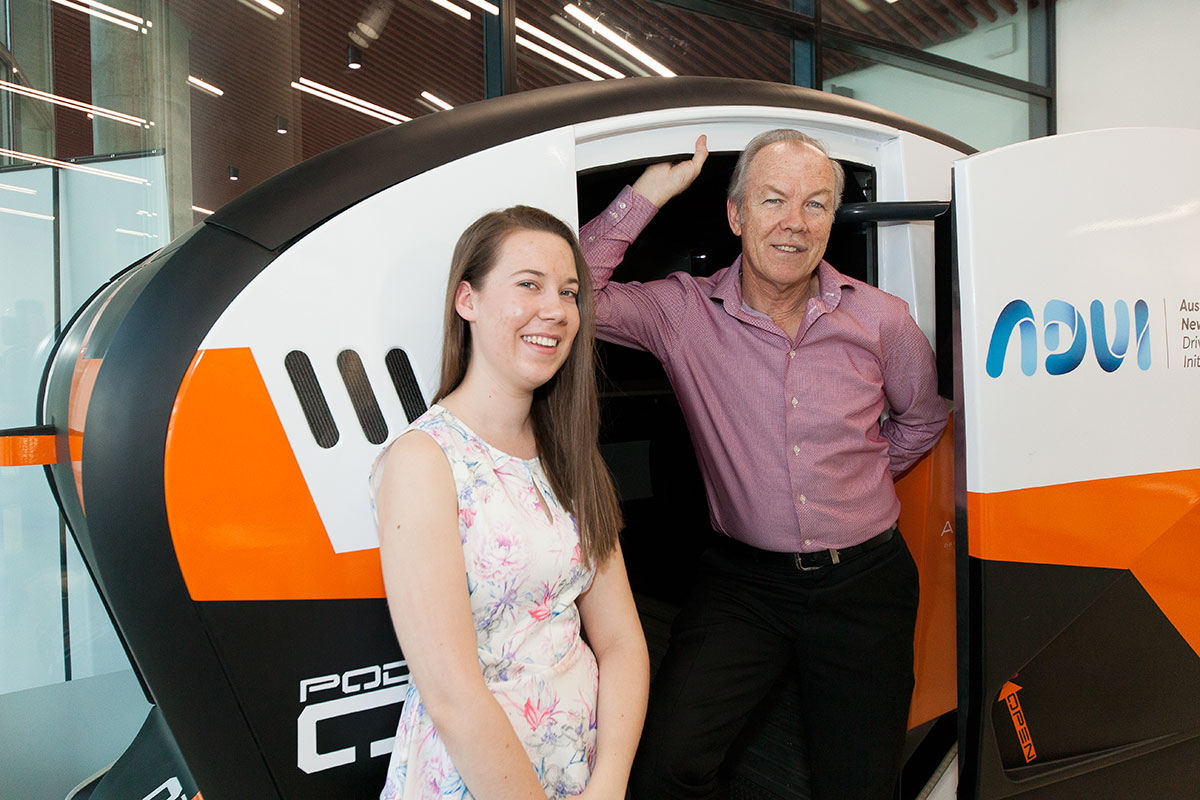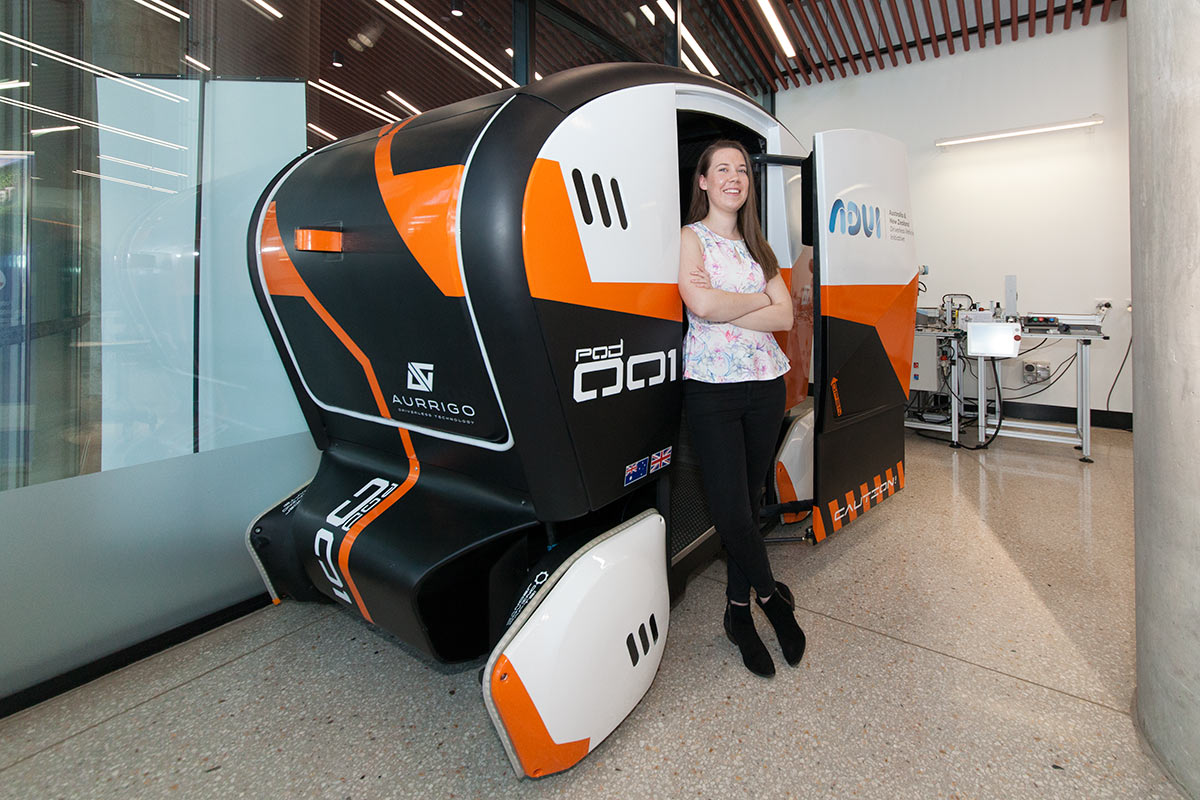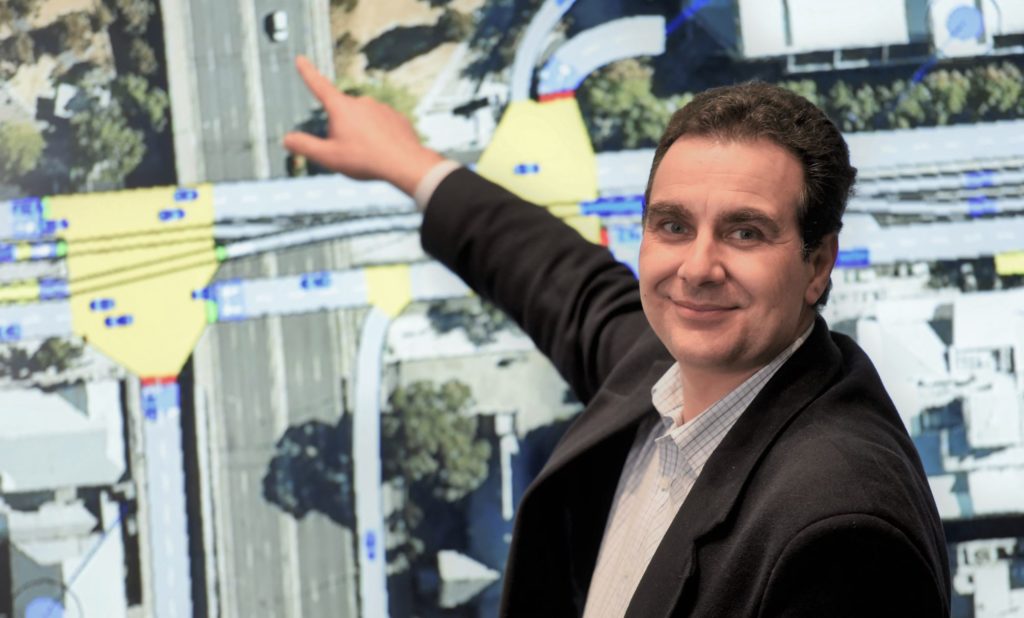
Autonomous (driverless) vehicles are steering new career pathways for South Australians, including for Flinders University student Alysse McDonald.
The 20-year-old electronic engineering student has landed a 20-week work experience placement, starting with three weeks at international automotive engineering company RDM Group in England.
“After studying electronics at Flinders, I discovered I was interested in the automation subjects,” Alysse said at Tonsley before heading overseas for the first time.
“I always liked math at high school, then found that designing circuit boards and other aspects of automation was a fascinating combination of logic with a bit of creativity.”
Alysse will be learning more during her placement at RDM’s Aurrigo Driverless Technology operations in Coventry, England before returning to uni in late October.

Her return will coincide with the arrival of several engineering experts from Aurrigo in England to help set up the first trials of autonomous vehicles at the Tonsley Innovation Precinct at Clovelly Park.
“Alysse will have the chance to continue her experience with the trials as a paid position during her Honours year of study,” says Roger van der Lee, Aurrigo Director of Autonomous Programs, Asia and Pacific, who is based at Tonsley.
“This really is an exciting time in autonomous vehicle transport system development.
“And the start of the ‘last mile’ trials in real conditions in South Australia is at the forefront of incorporating driverless vehicles into our transport systems.”
Aurrigo Pty Ltd opened operations at Tonsley in Adelaide earlier this year as part of the State Government’s $10 million Future Mobility Lab Fund project.
The initiative includes Aurrigo trials of freight and people by autonomous vehicles at the 61 hectare site at the former Mitsubishi site at Clovelly Park.
It also includes a partnership between Flinders and eight partners, including RAA, to trial driverless shuttle services which will provide ‘last mile’ public transport from the Clovelly Park train station, South Road and other points within the Tonsley site.
A mobile app will enable people arriving by bus or train to Tonsley can book a shuttle to meet them.
Flinders University’s Head of Civil Engineering Professor Rocco Zito says the initial trials will be focused on putting driverless shuttles on to public roads within the Tonsley precinct before connecting them to bus stops on South Road and the Clovelly Park train station.
Earlier this month, the State Government announced its support for French autonomous vehicle company Navya establishing Asia-Pacific manufacturing in Adelaide.

“Establishing a driverless car vehicle operation here in South Australia is the perfect bridge connecting our past in traditional vehicle manufacturing and our future in advanced manufacturing in a clean, carbon neutral environment,” the Premier Jay Weatherill said.
South Australia is leading the nation in driverless vehicle technology after becoming the first Australian state to permit autonomous electric vehicles (AEV) to be tested on public roads.
It’s predicted that by 2020 many known automobile manufacturers and new entrants will have driverless electric car models on the road, with the AEV world market heading for an estimated US$7 billion by 2050.
Navya’s ARMA shuttles are electric, ‘100% driverless’ and can carry up to 15 people.
Professor Zito, who is chair the Australian Driverless Vehicle Initiative Scientific Research Group, will join an invited panel session on the ‘State of the Art Concept in Engineering and Computing’ at the 2nd International Driverless Vehicle Summit in Adelaide in November.
The Flinders Autonomous Shuttle Trial (FAST) is a collaboration between project partners Flinders University and RAA together with eight industry partners the SA Government, Cohda Wireless, SAGE Automation, SIEMENS, Telstra, transdev, UPG and ZENEnergy. The objectives of this driverless shuttle trial project are to increase public awareness and confidence in the technology, achieve integration with current road and public transport systems and be carbon neutral. The initial trial will see the shuttle used on public roads within Tonsley, providing a connection between bus stops on South Road, the Clovelly Park train station and all the businesses within the Tonsley Innovation Precinct.

